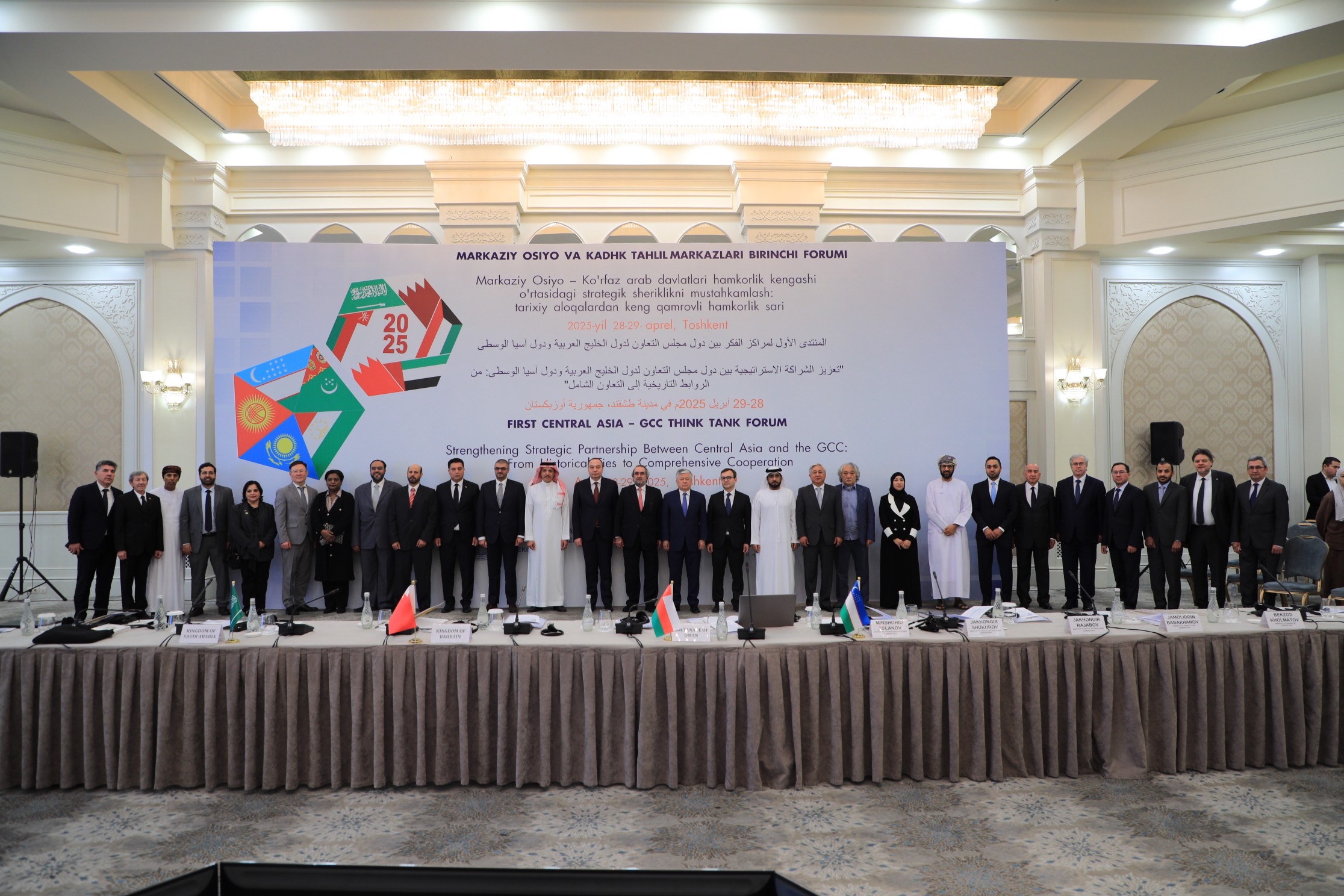

Advancing Regional Development: Central Asia – GCC Experts Forum Held in Tashkent

On April 28–29, Tashkent hosted the inaugural “Central Asia – GCC Analytical Centers Forum” marking a significant step toward enhancing dialogue and cooperation between two key macro-regions — Central Asia and the Gulf. This high-level event served as a platform for strengthening mutual understanding and fostering collaborative initiatives.
The forum brought together over 70 prominent participants, including experts, representatives of think tanks, diplomats, and members of the business community. Attendees included delegates from Kazakhstan, Kyrgyzstan, Tajikistan, Turkmenistan, and Uzbekistan, as well as from Saudi Arabia, the United Arab Emirates, Qatar, Kuwait, Oman, and Bahrain.
One of the main sessions was moderated by Mirshohid Aslanov, Director of the Center for Progressive Reforms. He facilitated discussions on critical themes such as regional stability, economic integration, and analytical cooperation. Through his moderation, Mr. Aslanov effectively guided a dynamic and substantive exchange of views, contributing to the alignment of perspectives across participating countries. In his remarks, he underscored the importance of establishing permanent platforms for collaboration among analytical centres, promoting knowledge exchange, and advancing joint initiatives to deepen understanding of regional policy.
A dedicated session on economic cooperation examined existing capacities and future opportunities in strategic sectors, including trade, logistics, renewable energy, food security, and infrastructure development. Participants also proposed frameworks for addressing contemporary global challenges, with a particular focus on green economy practices, digital transformation, and energy efficiency.
The session on cultural and humanitarian cooperation centred on the strengthening of ties through international education programs, cultural exchanges, joint scientific research, and youth engagement. These discussions emphasised the role of people-to-people diplomacy in fostering long-term cooperation.
Beyond formal negotiations, the forum provided a space for open and meaningful dialogue, enabling participants to share perspectives on pressing regional and global issues and to identify areas for future collaboration. The event concluded with proposals aimed at institutionalising cooperation, establishing regular communication among think tanks, and developing sustained strategic dialogue.
Such forums reinforce mutual trust between Central Asia and the GCC and lay the groundwork for long-term, sustainable regional development.